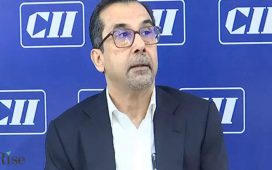Road to launch
Jumpstarted by the pandemic lockdowns and fuelled by rising smartphone penetration, digital payment systems have come of age in India. In 2022, the United Payments Interface (UPI) enabled some 7,404.45 crore transactions—that is 2,347 transactions per second. The total transaction value reached Rs 125.95 lakh crore, a 1.75x increase vis-à-vis 2021.
A sovereign digital currency like the e-rupee could take things to the next level. CBDC systems run on the blockchain, bypassing the costs of managing and distributing physical cash. This makes CBDC transaction costs some of the lowest globally. Moreover, the systems work 24×7, all year round, ensuring real-time transactions.
By introducing the e-rupee, the RBI also hopes to minimise the dangers associated with digital currencies. Last year’s FTX collapse served as a stark warning that the technology can be misused. With CBDCs, users can enjoy the benefits of digital currencies even as government oversight reduces the risks.
Global interest is on the rise, with 105 nations exploring CBDCs of their own. Among the bigger economies, China was one of the first out of the gate, launching the digital yuan pilot in April 2020. So, the timing is right for India’s e-rupee pilot. With CBDCs taking off globally, the e-rupee will be needed to facilitate cross-border payments at high speed and low cost.
E-rupee pilot: What to expectThe first pilot phase for the retail e-rupee was rolled out on December 1, 2022, in four cities—Mumbai, New Delhi, Bengaluru, and Bhubaneswar. Tokens are being distributed by the State Bank of India, ICICI Bank, Yes Bank, and IDFC First Bank.
Bank of Baroda, Union Bank of India, HDFC Bank, and Kotak Mahindra Bank will join in the second phase, during which the e-rupee will be offered in Ahmedabad, Gangtok, Guwahati, Hyderabad, Indore, Kochi, Lucknow, Patna, and Shimla as well. Gradually, the CBDC will be extended to more locations, banks, and users.
The e-rupee will be issued in the same denominations as the legal tender, and users can pay peers and merchants via a digital wallet. Merchant payments could be facilitated at the merchant outlet through QR codes. Payments should feel safer, and settlement finality will be assured.
Digital currency for the masses
Now over to feasibility. If the e-rupee is to service India’s 1.4 billion-strong population, it will need robust technological support. The key challenge here is scaling a publicly verifiable ledger, that nevertheless ensures privacy for all users within the Indian legal context, without a bloated transaction fee that discourages small casual payments. Considering the fact that the Government spent a whopping Rs. 1,044 crore towards subsidising the UPI network for processing transactions at zero charges during the financial year 2022, the latter requirement assumes an even greater importance.
Given these exacting demands and a high cash requirement, the RBI, and the academic advisors of the Indian CBDC team would do well to conduct a careful study of the top Blockchain patents by the big players such as IBM, Alibaba and nChain. The answer to meeting India specific requirements lies in ingeniously assembling a solution that takes the best features from all available Blockchain protocols and ensures unparalleled security for the users.
The offline capability will be another focal point as over 60 crore Indians have no internet access. If the e-rupee is to boost financial inclusion among the unbanked, digital wallets must be able to verify transactions independently without communicating with the server. Ensuring compatibility with ubiquitous and extant digital payment systems such as Paytm, PhonePe, and GPay will also contribute to the success of the Indian CBDC.
As the e-rupee rollout continues apace and new locations come under its purview, we should see more action in the digital payments space and blockchain solutions. Developers and financial service organizations will be buzzing as the adoption of the Indian CBDC becomes more widespread.
The writer is Director and CTO, Zorilla and Ambassador, BSV Blockchain Association.








